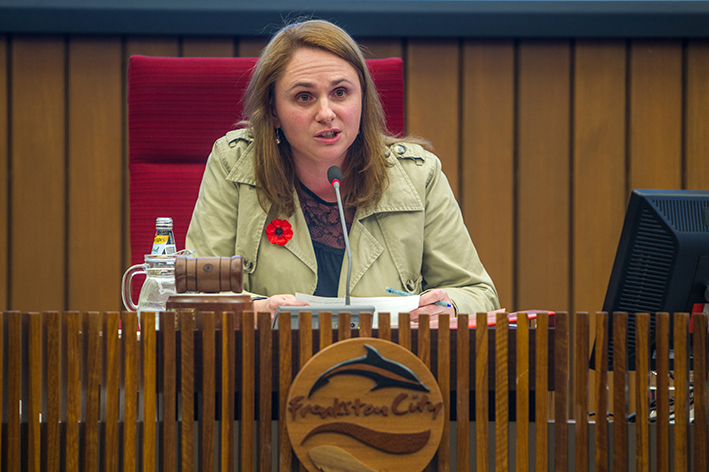
COUNCILLORS will no longer be able to individually dish out ratepayers’ money to community groups and sports clubs after the state government finally axed council ward grants
last week.
The long-flagged move to end Victorian councillors’ access to individual pools of money to dish out as they see fit came after a Local Government Inspectorate investigation in 2013 found just four councils out of 32 probed had sufficient measures in place to stop potential misuse of ward grants.
The discretionary funds were a way for councillors to pass on money to community groups without the need to wait months for approval as funding requests made their way through councils’ bureaucratic processes.
Frankston councillors listed ward grant recipients at council’s monthly public council meetings. Examples of ward grant funding included the purchase of sports club uniforms, arts projects and funding for community garden projects.
Despite ward grants being generally distributed with the best of intentions, the LGI investigation found inadequate oversight by councils meant “fraudulent or corrupt practices by individual councillors, whereby funds may be committed to self-interest groups” could occur.
The LGI report specifically noted governance concerns when Frankston councillors “publicly committed funds to sports groups, and advertised this in council publications, just prior to the [council] election period” in 2012.
Frankston’s nine councillors could collectively distribute up to $135,000 in discretionary ward funds each financial year. Each councillor had a limit of $15,000 to pass on to community groups.
Neighbouring Kingston councillors were able to distribute $6000 each and Mornington Peninsula Shire councillors had an individual $10,000 limit on annual ward fund spending.
Mornington Peninsula Shire decided to end its discretionary ward funds program in July last year when it became apparent councillors would be banned from allocating such funds.
A $110,000 Community Placemaking Grants Program was set up by the Shire with applications for funding “assessed by a panel of at least three relevant council officers” instead of an individual councillor.
Frankston mayor Cr Sandra Mayer opposed the axing of ward grants and said Frankston Council “has operated an open and transparent process”.
“Removing councillor discretionary funds is yet another example of the Victorian government punishing the community, by interfering with council business,” she said.
“By removing discretionary funds, the state government is taking the populist approach of implying that councillors have been doing the wrong thing – when the truth is actually the opposite: through their allocation of discretionary funds councillors have been able to achieve a lot, by offering much-needed support to many community groups and initiatives.”
“Councillors have used their funds to make a huge difference to the community, supporting initiatives like the free dental clinic in Frankston North, the construction of the new war memorial, charity days, scholarships and supporting locals getting to the Special Olympics.
“In some cases councillors have filled a void, by providing funds to services which fall under the responsibility of other levels of government – which they failed to support.”
The previous Coalition state government began the move to force councils to end councillor ward grants and the Labor state government backed the plan.
The Labor state government also introduced new measures last week to “empower” the Local Government Minister to clamp down on misconduct by councillors.
Councillors face suspension for up to six months or could be permanently stood down for misconduct by the state government under new standards of behaviour for councillors approved in state parliament last week.
Local Government Minister Natalie Hutchins says the “reforms to strengthen council governance” will enable councils and the Minister to “take action against councillors doing the wrong thing”.
Independent councillor conduct panels, set up by a new Office of Councillor Conduct Registrar, will investigate allegations of misconduct against councillors and will be able to suspend councillors found guilty of behaviour “inconsistent with the role of councillor”.
Each panel will consist of two members that the Registrar considers suitable and will include at least one lawyer who will chair the panel.
The Local Government Minister will decide who is eligible to sit on a councillor conduct panel.
The Minister will be able to appoint municipal monitors to direct councils to take action against councillors found guilty of serious or gross misconduct.
In a statement released last week, Ms Hutchins said councils and communities had told her improved behaviour standards for councillors “are desperately needed”.
“By giving councils and the Victorian government the ability to step in earlier, it will help ensure problems with councillor standards and governance aren’t left to grow,” she said.
“While overall misconduct among Victoria’s 79 councils is rare, it is vital that our governance frameworks are robust and ready to deal with misconduct.”
The new laws on councillor standards will be phased in over the next few months ahead of council elections next year “to ensure councils are ready for the changes”, according to Ms Hutchins.